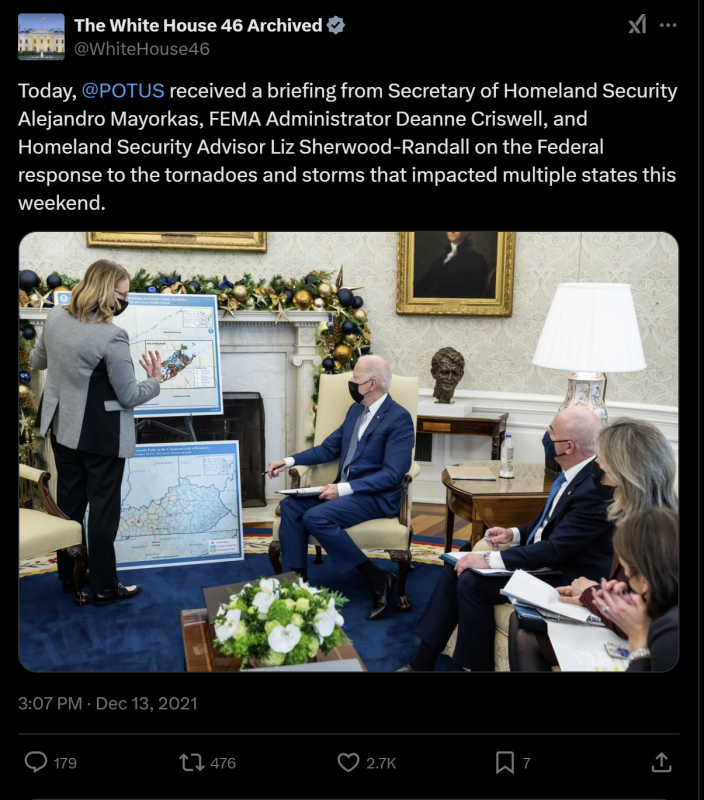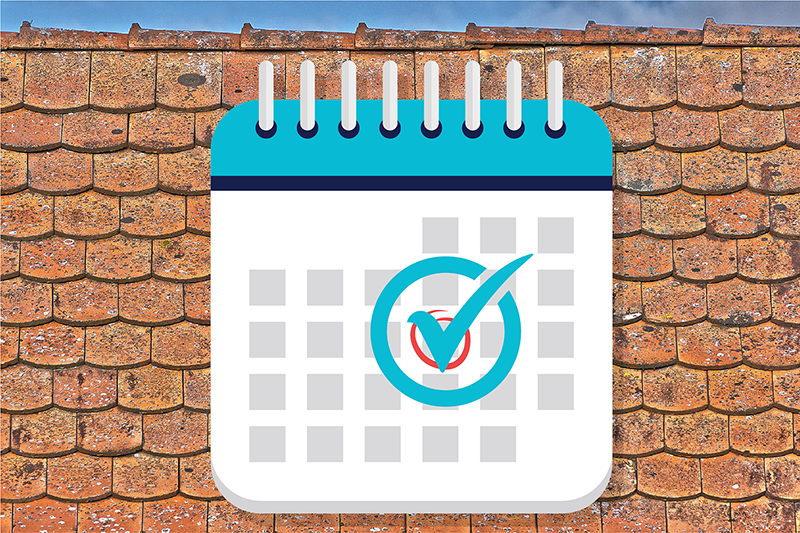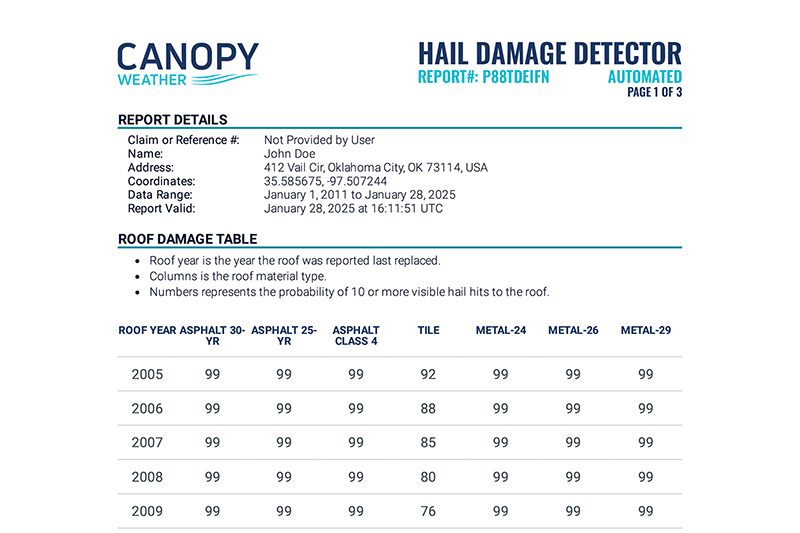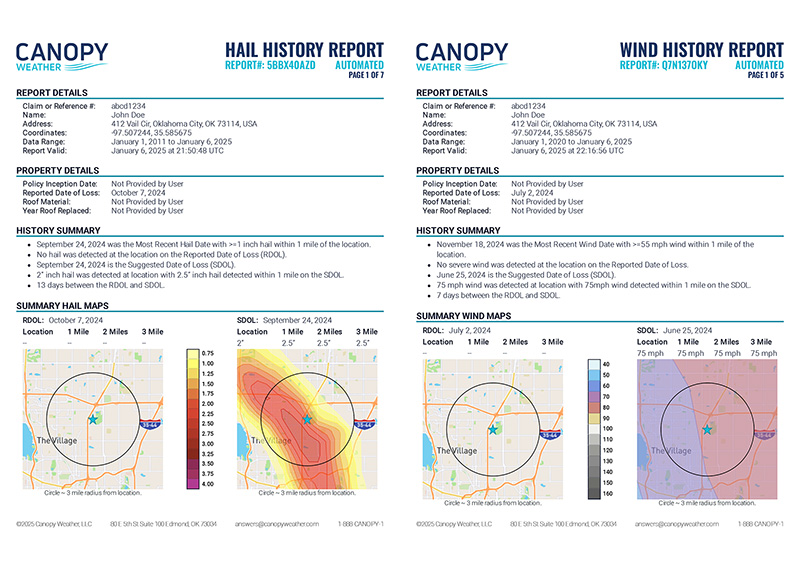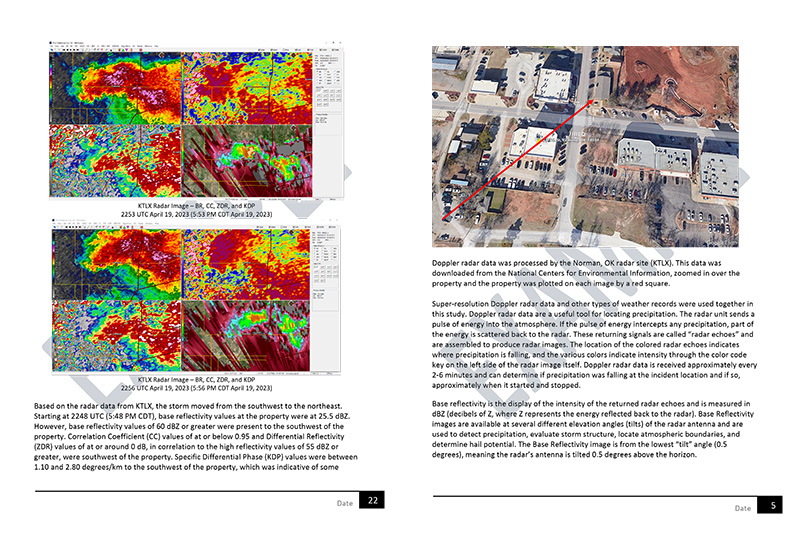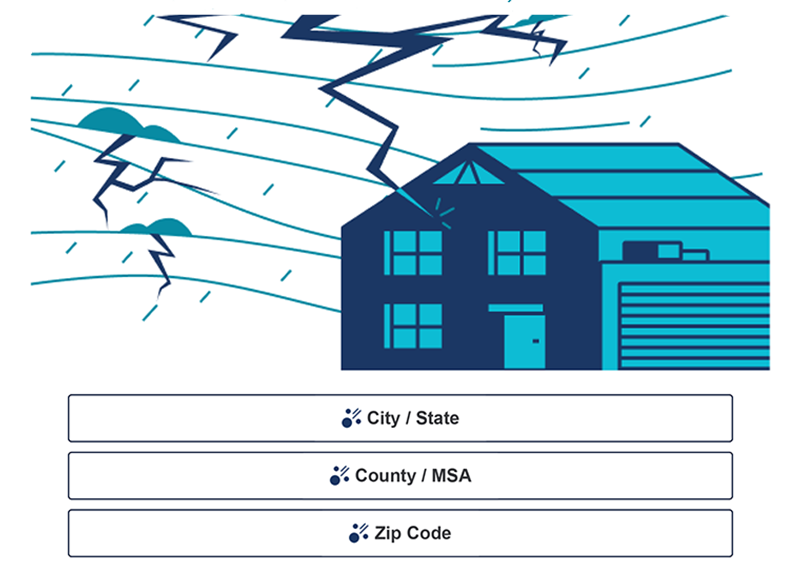Weather Hazard Maps: Hail, Wind, Tornado
Real-Time Essential Storm Intelligence for Claims, Disaster Response & Actuarial Analysis
Our Weather Hazard Maps deliver up-to-the-minute, high-fidelity storm intelligence across the continental United States—empowering claims managers, catastrophe response teams, actuaries, and reinsurers alike. With updates as frequent as every 15 minutes for hail, hourly for wind, and within an hour for tornado events, these maps capture the geospatial path of severe weather along with vital metrics such as hail size, wind speed, and tornado paths and estimated EF-scale ratings. Integrated seamlessly into your existing workflows via APIs, they enable efficient claims processing by clearly delineating impacted areas and expediting resource deployment.
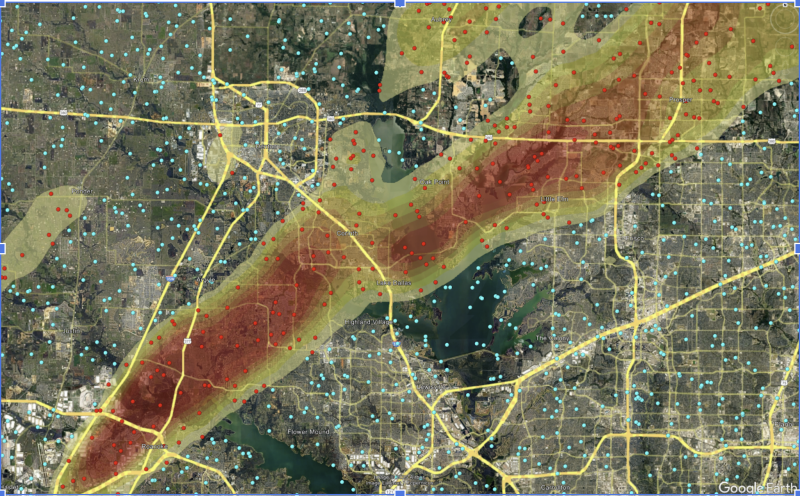
Canopy's Weather Hazard Maps offer indispensable data for loss reserving and disaster response planning, ensuring that all stakeholders can make informed, data-driven decisions when every moment counts.
Ready to Try a sample Weather Hazard Map?
Simply complete the form below, and one of our specialists will reach out to discuss your requirements. Our maps provide high-fidelity, near real-time insights into severe weather events—empowering claims managers, disaster response teams, and actuaries to make informed, data-driven decisions. Let’s get started on streamlining your operations with actionable storm data!
Weather Hazard Map FAQ
Claims managers, catastrophe response managers, actuaries, and reinsurers/reinsurance brokers
Our maps help:
- Claims managers handle claims efficiently
- Catastrophe & disaster response managers (like FEMA) improve response logistics right after a severe storm occurs
- Actuaries better train catastrophe models using real-world storm events, assessing risk
- Reinsurers / reinsurance brokers provide a value-add to their customer, the carrier
Our maps are trusted by leading insurance carriers and even FEMA—who uses Canopy’s tornado maps in White House briefings—to empower organizations to make data-driven decisions in the face of severe weather.
Our maps are updated & available within the following time periods after a storm:
- Hail: 15 min
- Wind: 1-hr
- Tornado: Variable, usually 1-hr or less
Weather Hazard Maps can be integrated directly into your workflow with our API
Not always. Often, more than one storm event needs to be analyzed to determine a precise Date of Loss for a property.
These maps show the geospatial path of the event.
- Hail maps indicate hail size over the area
- Wind maps indicate the speed experienced over the area
- Tornado maps show the path and estimated EF-scale ranking of each tornado
NOTE: These hazard maps indicate areas that may possibly have damage but are NOT damage maps.
For hail damage information, please see our Hail DamageDetector™ report.
Yes, usually.
Our Hazard Maps help insurance carriers identify how much of their book of business was affected and deploy resources to deal with the event.
These reports are NOT intended for or appropriate for legal proceedings.
For legal use, we recommend ordering a Forensic Report.

